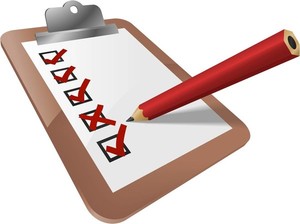A presentation by Niklas Ekman from the Finnish Medicines Agency during the 18th Biosimilar Medicines Congress in October 2022 in Brussels, Belgium reviewed the key elements of the revised World Health Organization (WHO) Guideline on evaluation of similar biotherapeutic products (SBPs, also called biosimilars) and gave a possible direction for biosimilar regulation in the EU [1].
The original WHO guidelines were adopted by WHO Expert Committee on Biological Standardization (ECBS) in 2009. In 2019, the Committee considered that a more tailored and potentially reduced clinical data package may be acceptable in cases where this was clearly supported by the available scientific evidence [2].
A review was then conducted based on available regulatory guidance, literature search for information on the long-term efficacy, safety, and immunogenicity of biosimilars, and published articles concerning the role of clinical studies in the benefit–risk evaluation of biosimilars.
The conclusion was that the non-clinical and clinical requirements of the WHO guideline should be re-evaluated and the quality section should be updated.
WHO drafting group with wide geographic representation started to work on the revision of WHO guidelines on evaluation of biosimilars in late 2020.
WHO Guidelines on evaluation of biosimilars are intended to provide globally acceptable principles for the licensing of biological products that are claimed to be similar to biological products of assured quality, safety and efficacy that have been licensed based on a full licensing dossier.
The first draft was published in April 2021 for public consultation. The comments received were considered by the drafting group, main comments were also discussed at an informal consultation meeting from 30 June to 2 July 2021. A second draft was published for public consultation in November 2021, and the final revised draft was presented to and agreed by the Expert Committee on Biological Standardization (ECBS) in April 2022. This final draft provided an opportunity to identify areas where the current guidance on evaluation of biosimilars could be more permissive without compromising safety and efficacy.
Highlights of the revised guideline [1]:
– The scope has been extended to all biological products that can be characterized (vaccines and plasma-derived products are still excluded)
– The terms ‘biosimilar’ and ‘reference product’ have been introduced (previously SBP and RBP [reference biotherapeutic product]
– The ‘stepwise’ approach has been replaced with the concept of ‘totality of evidence’
– The importance of the evidence obtained from analytical and functional (in vitro) assays further emphasized
– Using state-of-the-art and orthogonal analytical methods, complex products such as mAbs [monoclonal antibody] can be characterized in sufficient detail
– PK (pharmacokinetic) and PD (pharmacodynamic) studies (where applicable) may be sufficient for establishing confirmatory evidence of biosimilarity (also in the case of, e.g. mAbs)
– Throughout the guideline document, the regulatory requirements have been clarified and further guidance have been given:
- Quality: new subsection dealing with the comparative analytical assessment; guidance on the use of QA (quality assurance) risk ranking, establishment of similarity ranges, and overall evaluation/conclusion on analytical similarity
- Non-clinical: in vitro assays are of paramount importance, the need for additional in vivo animal studies is expected to represent a rare scenario
- Clinical: PK and/or PD studies may be sufficient for confirming biosimilarity, additional clinical studies may not be necessary
Regarding which direction (WHO or MHRA [Medicines and Healthcare products Regulatory Agency]-like changes?) the EU will go, a manuscript entitled: A data driven approach to support tailored clinical programmes for biosimilar monoclonal antibodies by Guillen et al. has been published in Clin Pharmacol Ther should provide some insights on:
– QAs of approved mAb biosimilars have varying concordance with the similarity range established based on reference product characterization data
– Clinical efficacy data played a limited role in addressing quality concerns
– A regulatory review of the standards for clinical data requirements for biosimilars is warranted.
Related articles
Europe’s IP framework should support earlier authorization of biosimilars, review finds
WHO guidelines on pharmaceutical pricing policies
|
LATIN AMERICAN FORUM
The new section of the ‘Latin American Forum’ on GaBI has been launched. The objective of this new section is to provide you with all the latest news and updates on developments of generic and biosimilar medicines in Latin America in Spanish. View the latest headline article: Reino Unido actualiza su directriz para permitir la intercambiabilidad de biosimilares Browse the news in the Latin American Forum! Register to receive the GaBI Latin American Forum newsletter. Inform colleagues and friends of this new initiative.
FORO LATINOAMERICANO
Se ha lanzado la nueva sección del ‘Foro Latinoamericano’ sobre GaBI. El objetivo de esta nueva sección es brindarle las últimas noticias y actualizaciones sobre desarrollos de medicamentos genéricos y biosimilares en América Latina en español. Ver el último artículo de cabecera: Reino Unido actualiza su directriz para permitir la intercambiabilidad de biosimilares !Explore las noticias en el Foro Latinoamericano! Regístrese para recibir el boletín informativo GaBI Foro Latinoamericano. Informe a colegas y amigos sobre esta nueva iniciativa.
|
References
1. Key messages from the revised WHO guideline and possible future direction for biosimilar regulation in the EU. Niklas Ekman. 18th Biosimilar Medicines Conference. 7 October 2022; Brussels, Belgium.
2. GaBI Online - Generics and Biosimilars Initiative. WHO revised guidelines for biosimilars: scientific background [www.gabionline.net]. Mol, Belgium: Pro Pharma Communications International; [cited 2023 Jan 13]. Available from: www.gabionline.net/biosimilars/research/who-revised-guidelines-for-biosimilars-scientific-background
Permission granted to reproduce for personal and non-commercial use only. All other reproduction, copy or reprinting of all or part of any ‘Content’ found on this website is strictly prohibited without the prior consent of the publisher. Contact the publisher to obtain permission before redistributing.
Copyright – Unless otherwise stated all contents of this website are © 2023 Pro Pharma Communications International. All Rights Reserved.








 0
0











Post your comment